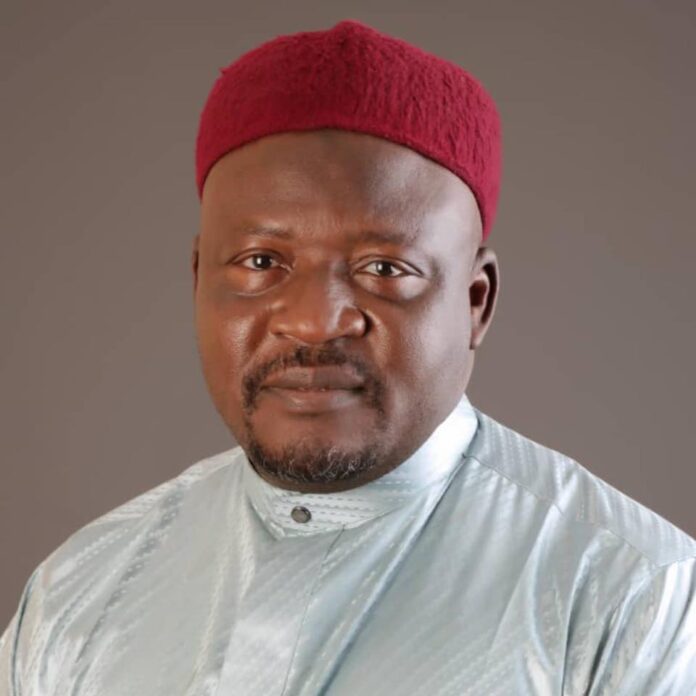The Nigerian Senate was thrown into chaos on Tuesday when Senator Kawu Sumaila, representing Kano South, made shocking allegations against his fellow lawmakers.
During a debate on a Bill to establish the National Institute for Drug Awareness and Rehabilitation, Sumaila accused several senators of being involved in drug abuse.
He claimed that some of his colleagues were storing hard drugs in their constituency offices and homes.
Sumaila’s explosive statements sent shockwaves through the Senate chamber.
He boldly declared that many political offices, including those of senators, were hiding large amounts of hard drugs.
According to Sumaila, these drugs were not only stored but were also being trafficked by individuals closely connected to politicians.
“As I am speaking now, most of our offices in our constituencies, most of our political offices in our constituencies, most of our houses, when you go there, you will find out that there is a mountain of drugs, and there are drug dealers in our offices and in our houses,” Sumaila alleged during the session.
These strong words immediately grabbed the attention of lawmakers and the public, as Sumaila’s accusations were not only surprising but also alarming.
Sumaila did not stop at accusing fellow lawmakers.
He went further to suggest that certain senior politicians in Nigeria were actively supporting drug dealers.
The senator emphasized that this drug crisis is not just a social problem but also a political one, with some leaders allegedly benefiting from or turning a blind eye to the issue.
“I can take you to some of the political leaders who are in so many ways contributing or supporting drug abusers in Nigeria,” Sumaila continued.
He then urged the Senate to take the issue seriously, stressing that the drug problem in Nigeria cannot be tackled unless politicians themselves stop supporting these illegal activities.
“We need to fight it from our own side. We need to be serious. Let us go for tests and see who and who are not,” Sumaila added, calling for a nationwide drug test for politicians.
Perhaps the most dramatic part of Sumaila’s address was when he openly challenged his fellow senators to swear on religious texts—either the Qur’an or the Bible—if they were not involved in drug-related activities.
He questioned the integrity of many of his colleagues, particularly during their election campaigns.
Sumaila hinted that many politicians might have used drugs or interacted with drug abusers during their campaign activities to gain political advantages.
“Let us ask ourselves during our campaigns, what are we doing with the so-called youth? How many of us can swear with the Qur’an or Bible that in any way they are not supporting drug abusers in their constituency?” he questioned.
This bold statement put many senators on edge, as the issue of drug abuse has long been a sensitive and hidden problem in Nigerian politics.
Sumaila’s speech didn’t just stop at accusations.
He offered a practical solution to the issue of drug abuse in Nigeria: mandatory drug tests for politicians before they contest elections or assume any public office.
According to him, this step would help ensure that only those who are clean from drug-related activities hold political positions in the country.
“Before contesting elections, or before taking up an office at whatever level in government, you must go for a drug test,” Sumaila urged.
He argued that until the political class sets a positive example and stops shielding drug abusers, the war against drugs in Nigeria would remain ineffective.
Sumaila also stressed the importance of the Senate working closely with the National Drug Law Enforcement Agency (NDLEA) to address the growing drug crisis in Nigeria.
He said that merely passing the Bill to establish a new agency might not be enough unless politicians and stakeholders make a firm commitment to fighting drug abuse.
“There is one aspect which we need to look into. Whether we create this agency or strengthen the activities of NDLEA, we need to do something,” Sumaila advised.
He pointed out that drug abuse is prohibited in both Islam and Christianity, yet the issue continues to grow because of the hidden support it receives from influential individuals.
Sumaila insisted that the government must work hand-in-hand with religious and community leaders, law enforcement agencies, and civil society groups to curb the scourge of drug abuse.
“We cannot achieve the intent of this bill unless and until we all agree that we will put our heads together with relevant stakeholders to stop drug abuse in Nigeria,” he concluded.
In response to Sumaila’s startling remarks, the Deputy Senate President, Barau Jibrin, who presided over the plenary, quickly ruled him out of order.
Citing Senate rules, Jibrin said that Sumaila’s comments were not relevant to the debate on the bill at hand.
“Order 56. Debate upon any motion, bill or amendment shall be relevant to such motion,” Jibrin explained, cutting off Sumaila’s speech.
He emphasized that lawmakers should remain focused on the subject matter of the debate, which was the establishment of the National Institute for Drug Awareness and Rehabilitation.
“In this case, your contribution is not relevant to the subject matter. I therefore rule you out of order,” Jibrin declared.
Sumaila’s statements have since sparked widespread reactions, both inside and outside the National Assembly.
Many Nigerians are now calling for an official investigation into the claims made by the Kano senator.
The accusations have not only put the spotlight on the issue of drug abuse in the country but have also raised questions about the integrity of some politicians in the country’s leadership.
While some lawmakers dismissed Sumaila’s comments as exaggerated, others have called for a thorough probe into the matter.
For many Nigerians, the senator’s bold challenge to his colleagues to swear by the Qur’an or Bible has further fueled suspicions about widespread drug abuse in the political class.
As the Senate moves to debate the Bill and other related issues, the accusations made by Senator Kawu Sumaila will likely remain a hot topic in the coming days.

